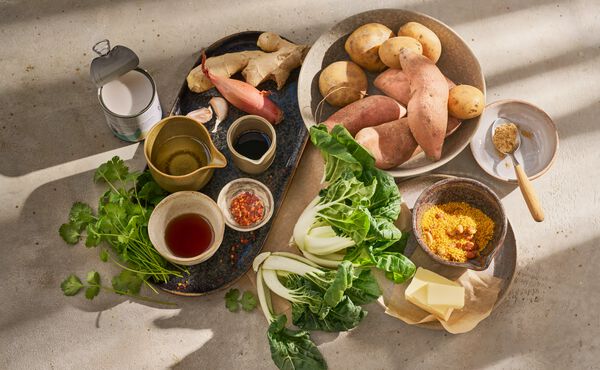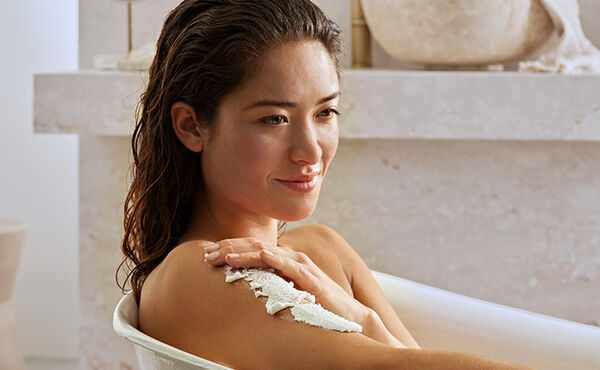Discover simple ways to nurture your gut health for a balanced mind, glowing skin, and natural energy boost.
Bacteria – not exactly top of anyone’s wish list. And yet, if brighter skin, better immunity, and supercharged energy are on your health hit-list (that’s all of us, right?), then experts say bacteria is something we should embrace a lot more warmly. A host of research shows that cultivating the good bacteria in our gut is the secret to improving almost every aspect of our health.

In fact, the gut does far more than just aid in digestion; it influences our mental and emotional wellbeing as well, thanks to the ‘gut-brain connection.’ Tuning into this connection allows us to recognise how our body feels, a gentle reminder of the importance of awareness and nurturing our inner balance.
“Hippocrates, the father of modern medicine, really was right when he said that ‘All disease begins in the gut’,” says Nishtha Patel, aka The Gut Expert, a nutritionist and functional health practitioner. “Inside your gut resides a whole colony of bacteria that communicates with everything from your hormones to your immune system.”
The problem for many of us is that “the typical high fat, low fibre Western diet is thought to be generally harmful for the gut microbiome”, explains Dr Deborah Lee, from Dr Fox Pharmacy. “It results in a deficiency of short chain fatty acids (SCFAs), which can lead to an altered immune response, and is thought to be linked to the rise in autoimmune and atopic conditions in the Western world.”
So how do we help the good guys flourish, without disrupting our usual diets? Here are 8 simple tricks for a more balanced gut microbiome.
1.Slow things down for better digestion
It might seem time-efficient to scoff a sandwich at your desk, but it’s your stomach that picks up the slack. “Digestion starts in the mouth,” explains Nishtha, “where enzymes in saliva start to break down food. If you’re eating in a hurry or under stress, there’s less salivating so hydrochloric acid in the stomach does the work. But when there’s not enough acid, larger undigested particles of food end up in the small intestine, which over time can cause little holes. This is known as ‘leaky gut’ - proteins that should not be leaving the gut enter the blood stream and vice versa”.
Can’t avoid eating on the go? Swap your sandwich for a delicious green smoothie with some added protein powder – an option that’s low-maintenance for digestion.
2. Try probiotics for glowing skin
There are many culprits when it comes to a lack-lustre complexion, but experts agree blue light from our devices can take much of the blame. Luckily, the gut microbiome can actually help combat this. “Probiotics containing lactobacilli are important for good skin health,” says Dr Deborah. “In one study on middle-aged Korean women, enriching the diet with a lactobacillus supplement led to enhanced skin elasticity and improved skin hydration.”
Besides supplements, probiotics, aka the ‘good bacteria’ that’ll boost our skin health, are found in fermented foods such as yoghurt, kefir and sauerkraut. So add these to your healthy dinner recipes.
3. De-stress to boost immunity
A layer of mucus in the gut wall alerts your immune system to the presence of pathogens in the body. “It’s our first defence against illness,” says Nishtha. So, if the muscosal barrier is compromised - by stress or a bacterial imbalance – then so is your immunity. “Here’s the thing,” warns Nishtha, “you can take all the supplements you like, but if your barrier isn’t absorbing well, they’re not going to work.”
Feeling stressed or overwhelmed? Unwind – and boost your immunity – with this 5-minute anxiety reducing meditation.
4. Beat the bloat with mindful eating
Bloating can be a sign that your digestive system is under pressure. “It’s often caused by a slow transit of food through the gut, excess gas production and is a common symptom of irritable bowel syndrome,” explains Dr Deborah.
Eating mindfully and ensuring food is well-chewed can help reduce bloating. Yoga, too, can stimulate digestion. Both Dr Deborah and Nishtha recommend the cat-cow pose to help alleviate pressure – try this morning yoga flow to add it to your routine.
5. Balance microbiome with a sugar swap
High levels of sugar feeds the bad bacteria in our guts. “Swap to Stevia,” advises Nishtha. “It’s natural, doesn’t affect the balance of bacteria as much as regular sugar and as it’s so sweet, you need far less of it which is better for your health overall.”
Love a sweet treat? Try this matcha granola bar recipe. Perfect for a healthy dessert or a grab-and-go snack, they’ll give you a natural boost of energy with every bite.
6. Go low glycaemic to clear acne
If you’re struggling with breakouts, it’s easy to focus on what you’re putting on your skin. But what’s going into your body counts too. “There’s a strong link between the health of the gut and the skin,” explains Dr Deborah. “Experts believe there is 'crosstalk' between the gut bacteria and the mTOR pathway - a major neurobiological pathway in the body that has a huge influence on growth, metabolism, and ageing, and that this could be linked to a leaky gut and in turn acne.”
The good news? “Low glycaemic diets have been shown to improve acne,” continues Dr Deborah. So swap your white rice, pasta or potatoes for wholewheat varieties and sweet potatoes. This delicious autumn salad recipe is a great place to start.
7. Vegetarian or vegan? Get some variety
“Many vegetarians I treat are actually ‘carbo-tarians!” says Nishtha. “Toast for breakfast, a sandwich at lunch, pizza for dinner... A gluten-heavy diet like this isn’t good for our guts - because of the way it’s processed, gluten can damage the intestines and cause little holes in the walls, leading to ‘leaky gut’. Be mindful of mixing it up.”
Need to add more variety to your weekly meal rotation? Try this umami-rich poke bowl or our Ayurveda-inspired gut healing comfort bowl for a tasty, healthy lunch or dinner.
8. Boost your mood with Bifidobacteria
Ever felt butterflies on your first day in a new job, or a stone in your stomach upon hearing bad news? That’s your Entric Nervous System (ENS) – a network of nerves in your gut which communicate with your brain. “Although anxiety and depression have been linked to gastrointestinal symptoms for a long time, researchers now believe it often occurs the other way round too,” reveals Dr Deborah. “The ENS may be triggered by irritation of the gut, influencing our emotions.”
While it can be a struggle to start new habits when you’re feeling down, a simple probiotic supplement could help. “In one study, people with chronic stress were given probiotics with Bifidobacteria for three weeks. Those with the highest initial stress levels saw the greatest change – rating themselves as happier, more energetic and less tired and depressed.”
Want more gut-friendly food inspiration? Check out our healthy recipe collection full of delicious dishes that’ll leave you feeling full yet satisfied.






.jpg?sw=600&sh=370&sm=fit&cx=0&cy=0&cw=600&ch=370&sfrm=jpg)
